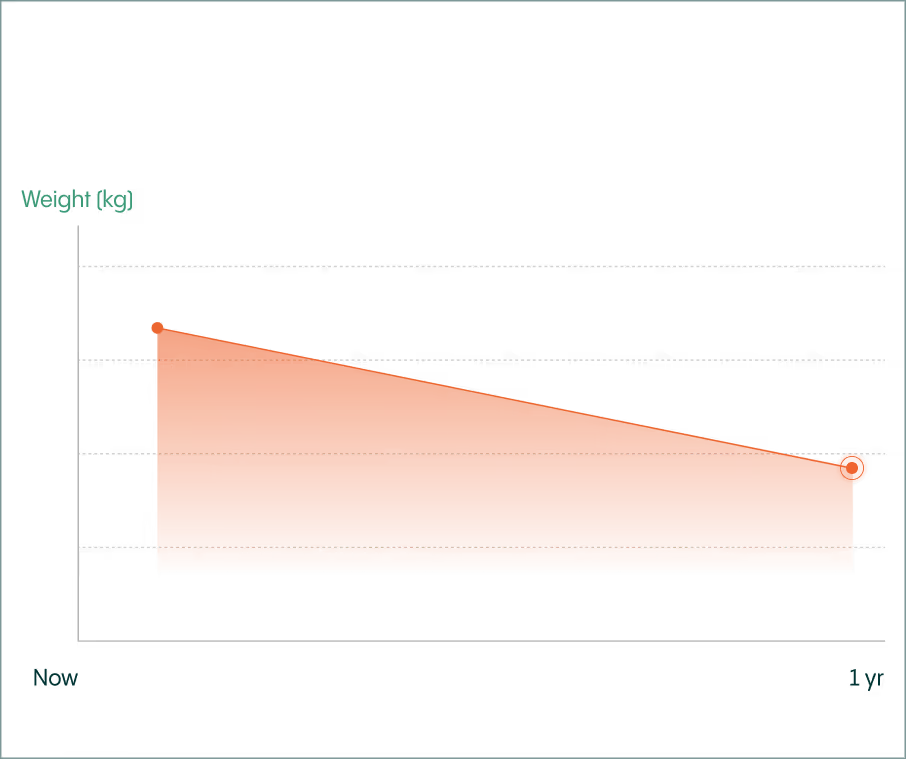.avif)
.avif)
Although there are many potential causes of erectile dysfunction, scientists reported that one common cause - thyroid hormonal imbalance – is often ignored. This article aims to discuss the role of the thyroid hormone, how its imbalance causes ED, and how it could be treated.

The thyroid gland is a tiny butterfly-shaped gland found near the base of the neck region. It produces hormones responsible for overall body metabolism. Other functions of these hormones include the control of blood pressure, heart rate, and body temperature.
In fact, thyroid hormones play crucial roles in every function of the body. So, any alteration in their levels may cause various health issues, where erectile dysfunction is one among them.
Hormonal imbalance of the thyroid gland leads to two issues:
1. Hyperthyroidism – It is an overactive thyroid condition where the thyroid gland secretes too much hormone.
2. Hypothyroidism – It is an underactive thyroid condition where the thyroid gland does not secrete adequate hormones.
Both these conditions can affect men’s ability to achieve an erection. Other symptoms include low sex drive, mood fluctuations, and fatigue.
During thyroid issues, your testosterone (the male sex organ) level will also come down which in turn reduces your sex drive. Mechanistically, both these conditions affect circulating sex hormone levels through central and peripheral nerve pathways. Furthermore, thyroid problem can indirectly affect your psychological stability that can affect your sex life.
Scientists are not yet clear about the exact relationship between thyroid disorder and erectile dysfunction.
A 2008 research article reported that 79% of people with thyroid dysfunction have ED, among which 37.5% of patients have severe ED.
According to the 2019 review article, researchers reported that although both these conditions are associated with ED, hypothyroidism is more connected to delayed ejaculation. On the other hand, hyperthyroidism is more connected to premature ejaculation.
Yes.
A 2006 research study revealed that ED was more prevalent in thyroid patients compared to obese and diabetic patients. This study also showed that thyroid issues are more frequently the cause of ED than aging.
Yes.
Fortunately, it is possible to treat thyroid disorder-induced ED. There are medications available for thyroid issues. Consult your doctor and discuss your symptoms so that he/she will recommend the appropriate treatment for you.
In fact, erectile dysfunction is more common among males with hypothyroidism. Levothyroxine, a synthetic form of thyroxine (T4 thyroid hormone), is the standard drug prescribed for hypothyroidism.
A 2018 research study reported that males with sexual dysfunction and hypothyroidism experienced an improvement in their ED symptoms after consuming levothyroxine drugs. In case the patient is already consuming thyroid medication, this treatment can be tweaked to find more improvement in sexual function.
In severe cases, you may have to take radioactive iodine to destroy the gland or get it removed surgically. Both these options will stop hormone production. In that case, you should consume thyroid hormone replacement medication for your lifetime.
A 2008 research article concluded that erection issues will disappear by themselves once the thyroid disorder gets treated. Hence, screening for thyroid issues was highly recommended for males with ED.
Yes.
Phosphodiesterase-5 (PD-5) inhibitors like Viagra (sildenafil) can effectively treat erectile dysfunction and do not cross-react with thyroid treatments. Furthermore, a 2017 research article reported that the L-thyroxine treatment benefits hypothyroid men with sexual dysfunction.
Since thyroid issues might be responsible for ED, the researchers suggested that the specific treatment for ED should be delayed for a minimum of 6 months after achieving a normal level of thyroid secretion, as reported in the 2008 study.
Are you currently experiencing the symptoms of erectile dysfunction? Curious to know whether you have a thyroid problem? Consult the doctor immediately.
Here at Noah, our doctors are well equipped with the knowledge to help you determine if thyroid disease is the root cause of your erectile dysfunction problem. Hearing your personal concerns, they will recommend the best treatment suited for you and can also prescribe the right medication to fix your ED problem.



Articles featured on Noah are for informational purposes only and should not be constituted as medical advice, diagnosis or treatment. If you have any medical questions or concerns, please talk to your healthcare provider. If you're looking for a healthcare provider, click here.
Gabrielson AT, Sartor RA, Hellstrom WJG. The Impact of Thyroid Disease on Sexual Dysfunction in Men and Women. Sex Med Rev 2019; 7:57-70 (Link)
Gerasimos E. Krassas, Kostas Tziomalos, Fotini Papadopoulou, Nikolaos Pontikides, Petros Perros, Erectile Dysfunction in Patients with Hyper- and Hypothyroidism: How Common and Should We Treat?, The Journal of Clinical Endocrinology & Metabolism, Volume 93, Issue 5, 1 May 2008, Pages 1815–1819 (Link)
Veronelli A, Masu A, Ranieri R, Rognoni C, Laneri M, Pontiroli AE. Prevalence of erectile dysfunction in thyroid disorders: comparison with control subjects and with obese and diabetic patients. Int J Impot Res. 2006;18(1):111-114. doi:10.1038/sj.ijir.3901364 (Link)
Krysiak R, Marek B, Okopień B. Sexual function and depressive symptoms in young men with hypothyroidism receiving levothyroxine/liothyronine combination therapy. Endokrynol Pol. 2018; 69(1):16-22. doi:10.5603/EP. a2018.0005 (Link)
Krysiak R, Szkróbka W, Okopień B. The effect of L-thyroxine treatment on sexual function and depressive symptoms in men with autoimmune hypothyroidism. Pharmacol Rep. 2017;69(3):432-437. doi:10.1016/j.pharep.2017.01.005 (Link)